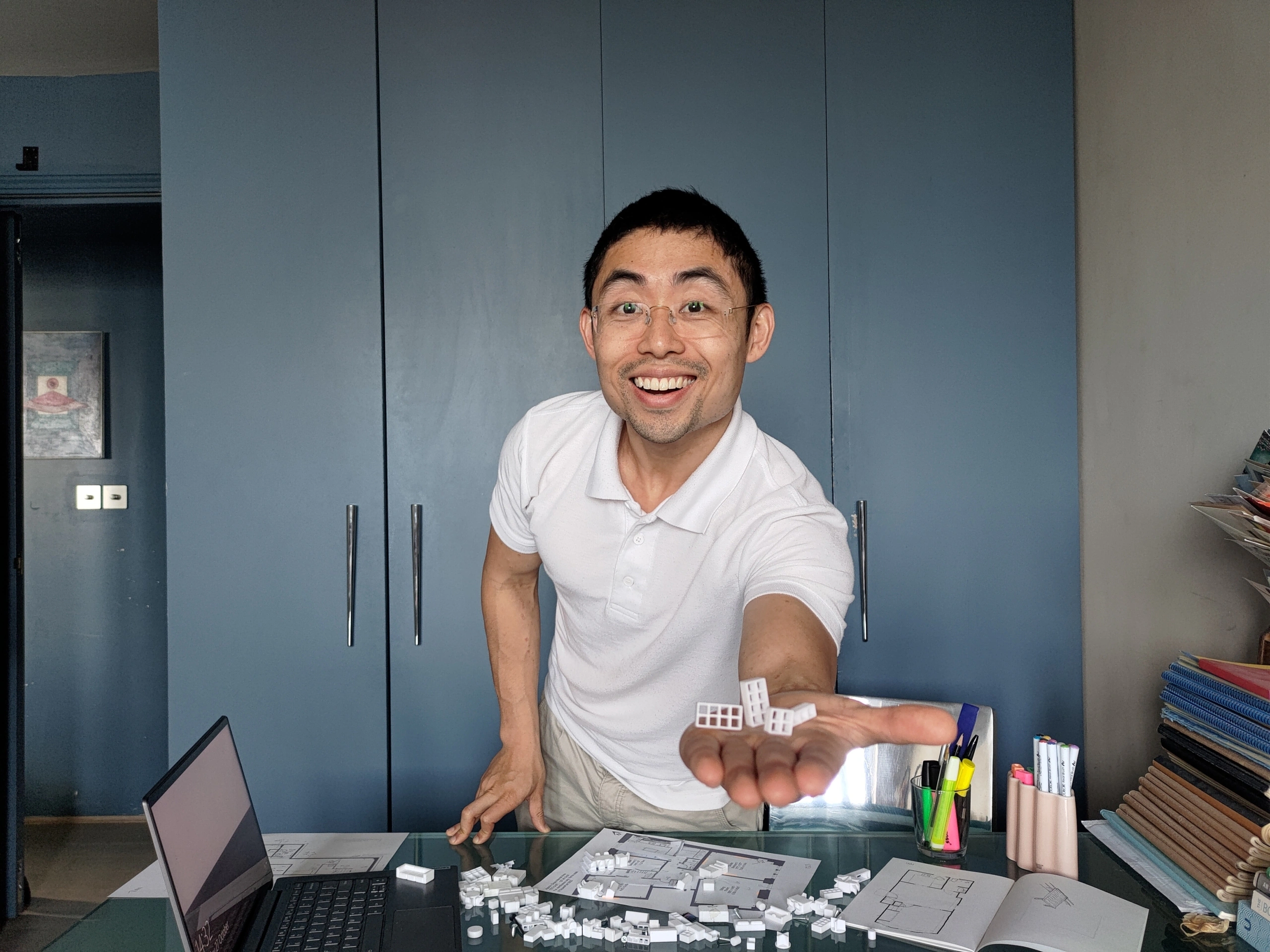Not often will architectural advice make you laugh out loud, but Cliff Tan is no ordinary architect. His work may be carefully measured and methodical, but his unique, rapid-fire style of delivery is anything but.
Whether he’s throwing out cushions with designs he finds offensive or declaring the light from venetian blinds ‘too aggressive’, Cliff’s Tigger-like energy and exuberance has earned the architect over 2 million followers on TikTok.
He’s putting smiles on faces with his short, super-helpful videos of practical tips on making homes work better, and he’s bringing the ancient principles of feng shui to a whole new generation.
“Don’t be put off by the mystique!” he cries, in his distinctive Singaporean accent. “Feng shui is just about making the most of your spaces, no matter how awkward or small, or whether you own or rent.”
Feng shui – the centuries-old guidelines for design – literally means ‘the way of wind and water’ and refers to the ideal location and orientation for the perfect city: with proximity to a river, protection from the hills and safety from floods. But now Cliff uses the same principles to fix any room and optimise any space.
He knows it might seem far removed from the style challenges we face today – of cramped kitchens, awkward-shaped living rooms, and bedrooms doubling up as home offices. But his affordable, accessible solutions are for everyone.
“It’s about understanding and enhancing your environment, making it flow better and therefore giving you a clearer mind, helping you live the best life you can,” he explains.
“Feng shui is just about making the most of your spaces, no matter how awkward or small, or whether you own or rent.”

Cliff, 34, even has a catchphrase, ending each piece of advice – all flying arms and bubbling enthusiasm – with a grin and a cheery, “So, now you know!”
Cliff’s grandfather was a prominent feng shui practitioner. But Cliff only thought about applying feng shui himself in 2010, on moving into “a tiny trapezoid-shaped attic room with a broken window,” in London.
“I felt immediately oppressed by the sloping-in walls, arghhh!” he cries. “But I shifted furniture, transformed the room, and I’ve been applying feng shui ever since.”
Cliff remained in London, and now lives in a high rise flat in Clerkenwell with his Hungarian husband. “He’s the opposite to me,” laughs Cliff. “He doesn’t care about feng shui at all. We really are yin and yang.”
It was while Cliff was quarantined in a Singapore hotel room during Covid, scrolling through his phone that he launched @DearModern in 2020. Now his fans come from all over the globe, but Cliff has noticed one common theme: “Everyone seems to have a Kallax bookshelf from IKEA! It’s the one shop everyone can access, wherever they live.”
Superstitious types believe feng shui can make them richer, happier, and even luckier in love. Cliff is frequently asked whether feng shui actually ‘works’. He answers with an analogy. “If you send a child to a good school, does it guarantee they will get a good job and become respected and rich? No. Although it might help. Like a good school, feng shui gives you the right environment to achieve your goals, but it cannot guarantee any specific outcome.
“Spaces do shape your moods and feelings – and this can change outcomes,” he emphasises. “We almost always feel better in a beautiful, balanced space, and that’s a step in the right direction to health, wealth and happiness.”
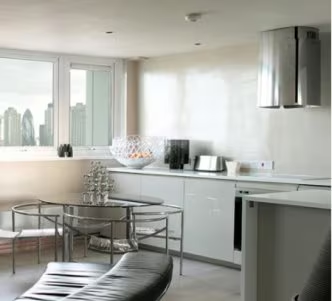

“We almost always feel better in a beautiful, balanced space, and that’s a step in the right direction to health, wealth and happiness.”
Here are eight – seen as the luckiest number by the Chinese – top tips from Cliff on bringing feng shui into your own home…
1. Enter with grace
“A too-small door can mean less fortune entering your home, too big and it won’t hold it in.”
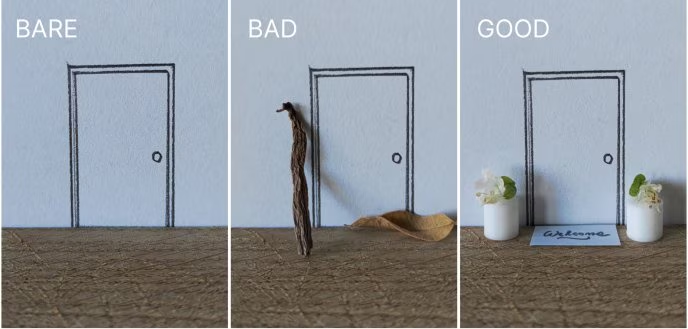
Make sure your front door feels welcoming, friendly and respected
First impressions are made here, but it’s less about impressing guests and far more about how you feel returning home. A beautiful entrance is key to a great vibe – bringing fortune and energy.
The main door you use – the ‘mouth’ of your house – isn’t necessarily the property’s original one, so if you use your utility or side door more, that’s your main door which should be celebrated and respected.
If it’s a side door backing onto an alley, decorate it with plants either side, or create a path signifying the entrance. Think strong and imposing, yet welcoming too. If it’s north-facing, paint it black or deep blue. South-facing sunny spot? Red doors bring strong energy.
Opt for solid wood to symbolise security (not glass which represents fragility) and doors should open inwards to encourage in the flow of chi (energy). A too-small door can mean less fortune entering your home, too big and it won’t hold it in, or signals immodesty. Avoid a doormat with a logo of something you admire, because why would you want to trample on that?
2. Strong stairways and heavenly halls
“Don’t put a mirror on the end wall of the hall which will reflect the chi back out of the house.”
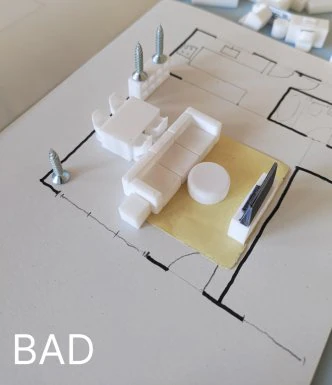

If your front door opens straight into a room, create the illusion of an entry space by rearranging your furniture
Treat hallways as proper rooms, not places to discard shoes! If you have a long corridor, there can be too much aggressive chi, so absorbers like hanging pendant lights will soften it, and a mirror on the side wall will create a sense of width. Just don’t put the mirror on the end wall which will reflect the chi back out of the house. Bright artworks will draw attention away from the length.
Like corridors, stairways right at the entrance invite strong chi. If there is a room for a screen, so the stairs don’t instantly confront you, use one. Even neatly hung coats and properly stored shoes on the side where the door hinge is, provides a visual trick to help you ‘pause’ on entering.
Halls are the perfect place to hang religious artefacts, should you like them, to remind you of your guide as soon as you come home. No hallway? If you step straight into your living room, try and create the illusion of an entry space by using a screen or table of flowers to divert the chi flow. And try to arrange the furniture so that it almost forms a circle, implying a hallway near the entrance.
Keep the space free of obstructions, though if there’s room (and natural light) broad-leaf plants will highlight ‘this is a place where life thrives’.
3. A room to really live in
“Never put TVs above a fireplace. It gives too much significance to the TV, as though suggesting it’s more important in your life than people.”
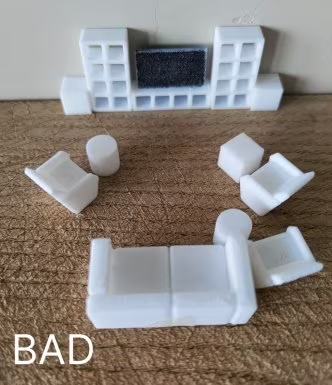
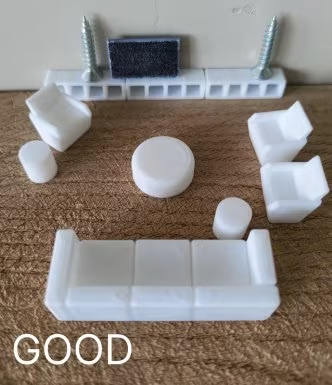
Your living room is where friends and families gather, so have your chairs facing each other to make it a social space
Living rooms are where families gather, visitors are welcomed and there’s the most life and energy, so go to town with plants, art and mirrors (making sure they reflect lovely things, not doorways – you don’t want to be startled by your own reflection on entering).
The ‘command position’ in any room is where you feel most secure, in charge of your space. The sofa needs to take command – with a wall behind, space in front, and allowing you to see the entrance from it. It’s a communal space, so have facing armchairs (or a bench or statement stool if space is tight). Avoid putting chairs in alcoves, which suggests leaving someone out.
Because living rooms are social places, to encourage conversations, you don’t want a TV to dominate the room (even though we all watch them!). Never put TVs above a fireplace. It gives too much significance to the TV, as though suggesting it’s more important in your life than people. Keep them low, in corners, either on legs, or on top of a large cabinet, perhaps balanced with a lamp on the other side.
If the sofa has to ‘float’ (rather than be against a wall), a low console table behind it offers rear protection. Place a coffee table – decorated with something beautiful for prosperity – in the middle. This will act as ‘anchor’, bringing it all together, softening confrontation. For small rooms, a side table works similarly, and floor-to-ceiling curtains add scale.
Create depth by using different light sources. If you must have a chandelier, never place it over the sofa, it will feel threatening and spiky hanging over your head, try the coffee table instead.
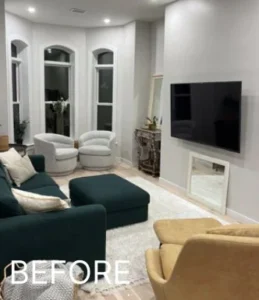
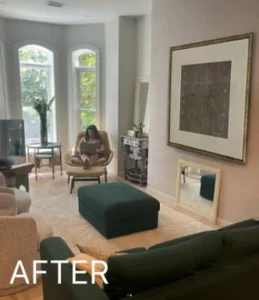
This is a more subtle transformation but the rooms feels much more open without the TV dominating the space
4. A sanctuary to sleep in
“A classic feng shui rule in the bedroom is to avoid having feet pointed towards the main door, it directs chi straight up to you and recalls a coffin position, seen as unlucky.”
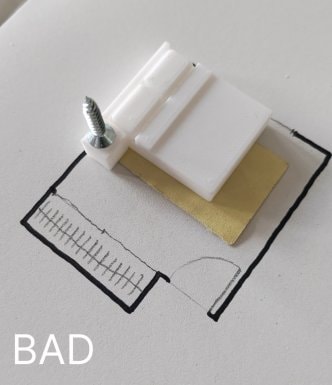
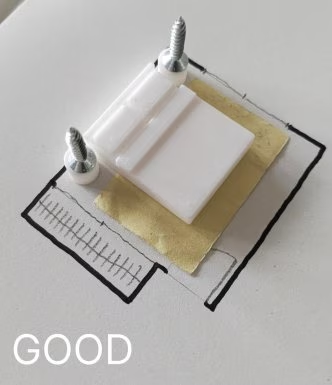
A centrally positioned bed with bedside tables and lamps on each side is balanced, showing you are ready to welcome someone into your life
I’ve been asked to design rooms to attract a mate, but I’m no magician!
The bed position is important and must take the command position. If you place your bed centrally, with bedside tables and lamps, it’s balanced, showing you are ready to welcome someone into your life. It says, “This spot next to you needs to be filled!” The person won’t just come, but it reminds you to look for them! Though if you’re happily single, it’s fine to put beds in corners.
Though bedrooms can be passionate places, the main element should be earth, not fire, so prioritise this space as your sanctuary, a calming place to rest and recharge. Keep it free from TVs, computers, exercise equipment and even your phone, ideally.
Beds need a solid wall behind them, and a bedhead. This can even be created with paint to anchor it. Keep bed linen light-coloured, avoiding black sheets.
A classic feng shui rule is to avoid having feet pointed towards the main door, it directs chi straight up to you, and recalls a coffin position, seen as unlucky. If this is unavoidable, a heavy piece of furniture at the bed’s foot can help. Never place chandeliers, shelves or heavy art above your head – even if firmly secure, they will cause anxiety about safety. Remember, feng shui is about creating a calm state of mind.
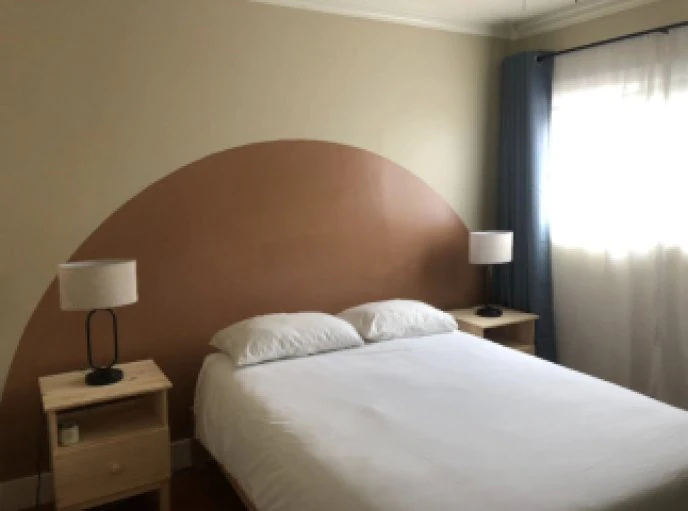
Anchor your bed with a bedhead. Paint works just as well
5. Kitchens and bathrooms
“Knives signify aggression so hide them in drawers.”
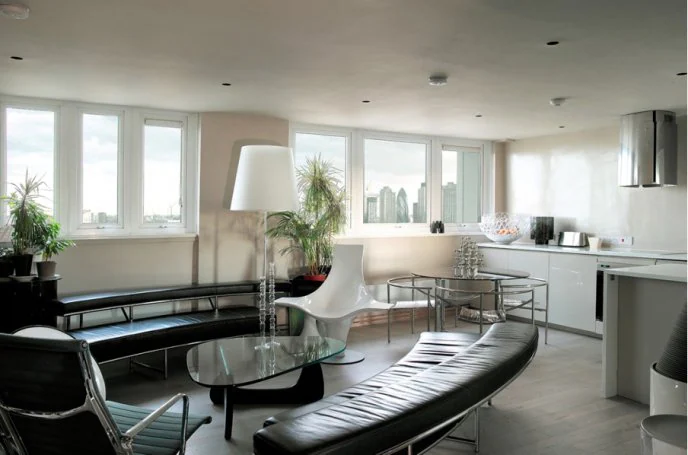
Cliff changed the layout of his own kitchen to open plan, and added rounded furniture for a better flow in the space
Traditionally there is less focus on these ‘service’ rooms in feng shui, but there is plenty you can do.
The main cooking appliance, the stove, is the central element (fire) and the sink (water) is secondary, so avoid placing them together, though plants between them can mediate if needed. Fridges are also water appliances so follow the same rule. Avoid mirrors in kitchens (which will reflect too much chi around the room) or having bins on display. Knives signify aggression so hide them in drawers.
I changed the layout in my own east-facing kitchen to open plan, and took out the eye-level cabinets for a more spacious feel. Then added rounded furniture to promote the flow around the space. A round glass coffee table reflects the light and the views, and plants placed close to the window energise the interior.
Feng shui rarely refers to bathrooms as they were traditionally located outside the house intended for waste elimination and seen as ‘smelly’. But modern bathrooms can be calming. I would avoid red as it can destroy the water element, and if you have no window you must invest in a high quality vent to avoid stale air.
6. WFH woes
“Never try to work in your bed because the goal in feng shui is to match spaces to your natural tendencies.”
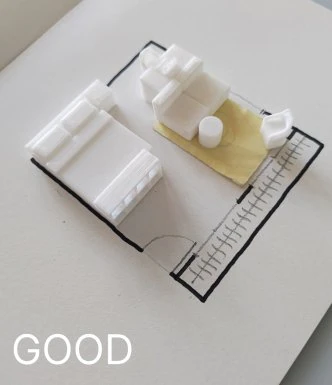
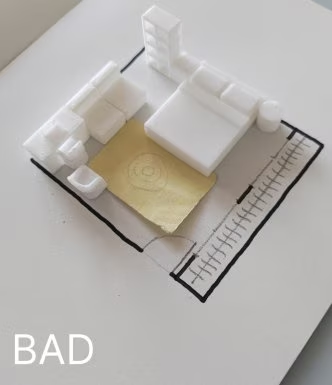
Sticking your desk in a corner so you are facing the wall with no natural light is not good feng shui, and likely to make you miserable for eight hours a day
With more of us working from home, at least some of the time, it’s crucial to have somewhere to do it efficiently. And one of the biggest challenges I come across is how to squeeze in desk space.
People think, “Yuck – work!” and try to hide away their desk in cupboards or little corners. But the chances are you need to spend eight hours a day sitting there, and you don’t want to make yourself miserable in a dark corner!
Having daylight on your face is crucial to wellbeing. I once got a lady to swap her bedroom and study over to make sure the study had the bigger windows. She was reluctant as she felt the bedroom – the ‘better room’ – deserved more natural light. I said, “Come on, let’s do it now!” And started lifting furniture which took her aback. But switching the functions around gave her a brighter working space and calmer sleeping area. It genuinely made her happier.
If you don’t have a separate study room, then you’ll need to create an office area elsewhere, and in the living room is preferable to the bedroom.
Try to set up a proper desk, even a small one, furthest away from the circulation areas. And make sure you face into the room, you don’t want to be staring at the wall as you work, you still want to be in the command position and able to see the door.
If you really have to work in your bedroom, at least keep the area around your bed sacred. Desks can be disguised a little if you keep the units on either side at the same level so it flows and blends in. Don’t have tall cabinets looming over the desk, as that will only make you feel hemmed in.
If you need to work at the kitchen table then at least move the bowl of fruit and flowers while you are working to create a clear mental ‘work’ space – and always close the laptop at the end of the day to signal work is done.
Having a designated place for your varying activities helps our mental connections. So never try to work in your bed because the goal in feng shui is to match spaces to your natural tendencies.
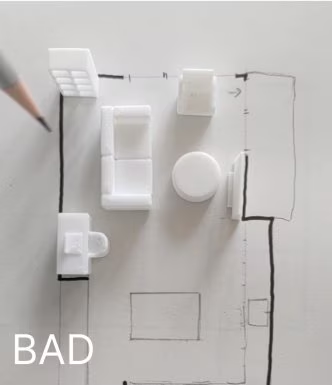
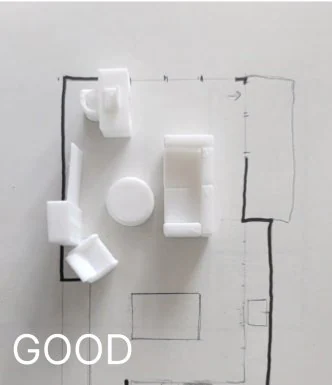
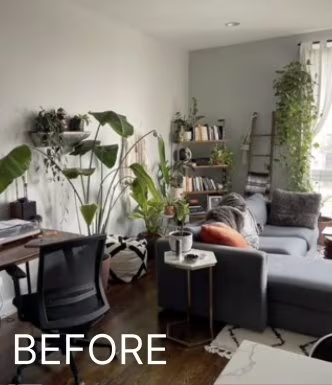
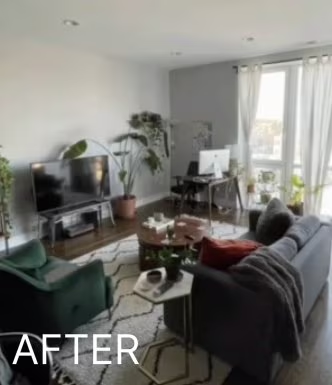
This lady did exactly what I suggested here and moved the desk to the window and away from the commotion of the kitchen, where it is now inconspicuous – and improved the whole dynamic of the room
7. Clutter and storage
“Clearing clutter is not just hiding everything away, it’s about using a logical system.”
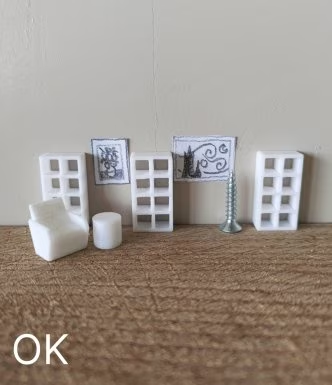
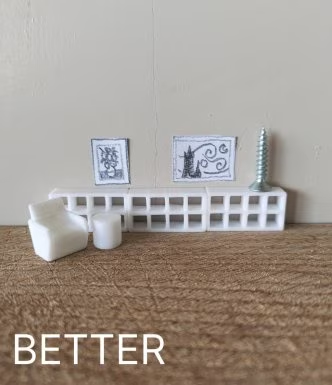
Using IKEA’s Kallax shelves horizontally can create more air and space in your room
Every home contains stuff, it’s only when it takes over it becomes clutter. In feng shui this is bad because spaces need to flow freely with our mind. If you think of your home as a map, how can you ever feel like you belong if you can get lost in it?
Clearing clutter is not just hiding everything away, it’s about using a logical system. Categorise everything, don’t allow a miscellaneous box, toiletries need to be in the bathroom, clothes in the bedroom and so on. Owners of the IKEA Kallax shelves often use it vertically, assuming it will take up less room. Sure, it’ll take up less floor space, but if you place it horizontally, the air space is freer, the room will feel more open, and you can display beautiful things on top.
Too much furniture is also clutter, so only have what you need. Pick one item in your home you are passionate about, whether it’s a picture, jewellery or even a TV. Don’t think about how it looks, it’s about how it makes you feel. Try and test that feeling with every single new purchase to make sure you love everything that surrounds you. Is the feeling there? If not, don’t buy it.
8. Belongings, decorations and photos
“Memories are created by chancing upon things, so choose decorations as though they’re souvenirs of your life, recalling happy moments.”
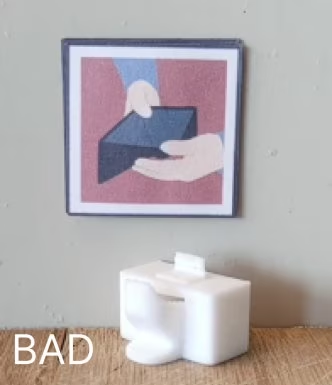
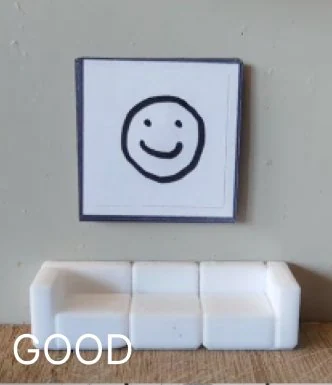
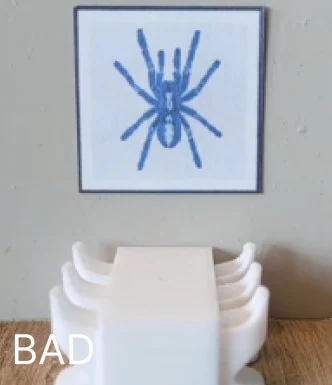
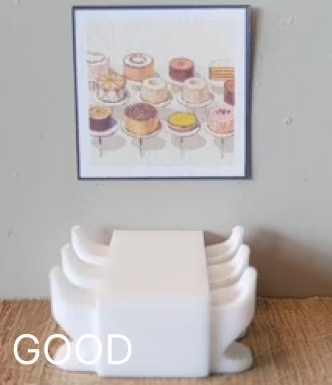
Your choice of art and where you hang it matters…
The things you own and how you display them makes a house a home that is especially yours. Even the most beautiful hotel room will never feel like home because it’s impersonal.
People try to copy a certain look from an interior design magazine and buy accessories to ‘fit’. If they think the maximalist look is fashionable, they ‘busy up’ their rooms with lots of decorations. But unless they’re significant, it will never feel right.
Memories are created by chancing upon things, so choose decorations as though they’re souvenirs of your life, recalling happy moments. That doesn’t mean that they can’t be matched with a scheme, but choices must be made with love.
You can stop it looking messy – put the tall things on the side, create negative (empty) space in front, use odd numbers of objects which go easier on the eye, and create clusters of colourful things together rather than spreading them around which can feel uneven if the rest of your colour scheme is neutral.
If you prefer the minimalist look, it doesn’t mean hide everything. Have a very clear backdrop, like a plain wall and shelf, and then curate and showcase a few objects that have real significance.
Put care and thought into where you place photos and pictures. Anything depicting food or drink should be hanging in the kitchen. Bedrooms need to be calming, so a picture of a dragon in there would be a big no no. And I’ve thrown out cushions with skulls and crossbones on them from bedrooms before! You might think, “It’s just a picture, what harm can it do?” but seeing aggressive things in your bedroom will change your state of mind and your mood.
Similarly, a picture of you and your partner is too intimate to have hanging in the living room. That would be perfect on your bedside table. Group pictures of your friends? They should be in the living room too, otherwise it will feel like you’re among your friends and it won’t be the relaxing vibe you need as you fall asleep.
I LOVE plants in rooms, but if you really struggle to keep them alive, suggest life instead with a bowl of fruit, sculptural lighting or hanging mobiles.
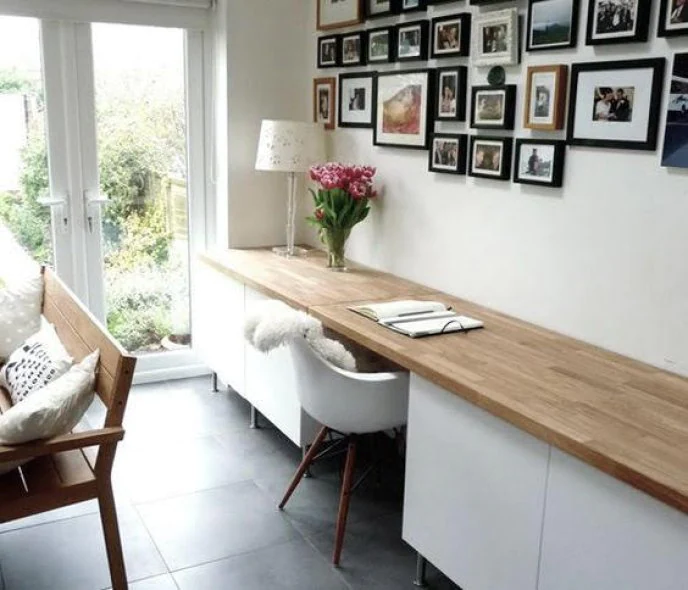
Imagine a horizontal line running across your wall at table level and only display beautiful things above it
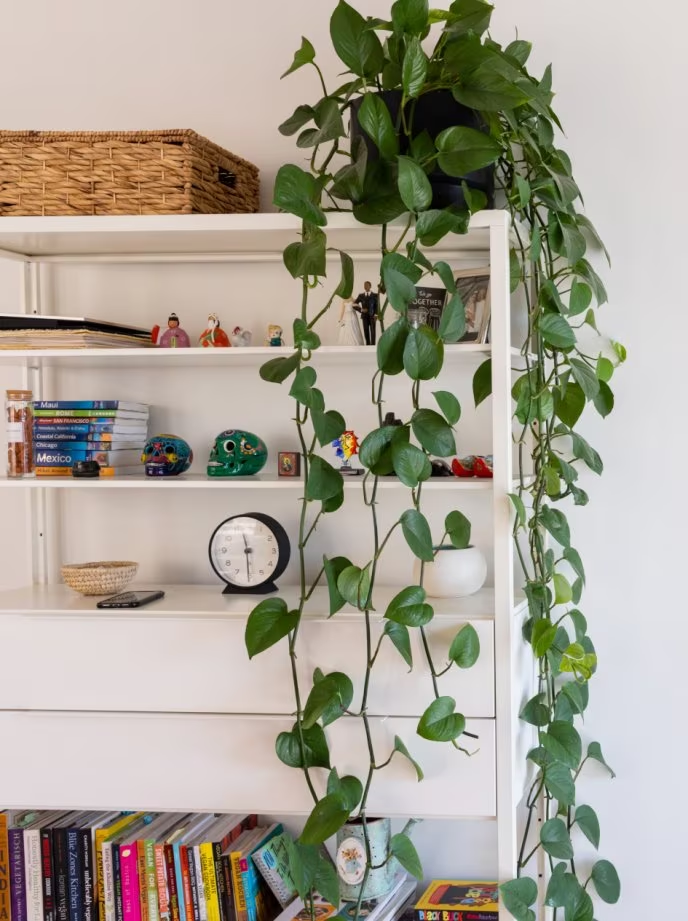
The main thing is don’t be scared of feng shui or feel you will bring ‘bad luck’ if you need to break some rules. Feng shui is knowledge that has been passed down through generations, like my grandfather who taught me. Some rules might not just be relevant in your home, it’s really more about a sensible approach to living well.
SO, NOW YOU KNOW!
For more advice from Cliff Tan, see his book Feng Shui Modern published by Bloomsbury, or search @DearModern on Instagram & TikTok
Words: Susanna Galton
Images courtesy of Cliff Tan @DearModern
